How much does it cost to run an air fryer? Do they save money?
We've calculated what it will cost to cook with an air fryer following the new January 2025 energy price cap
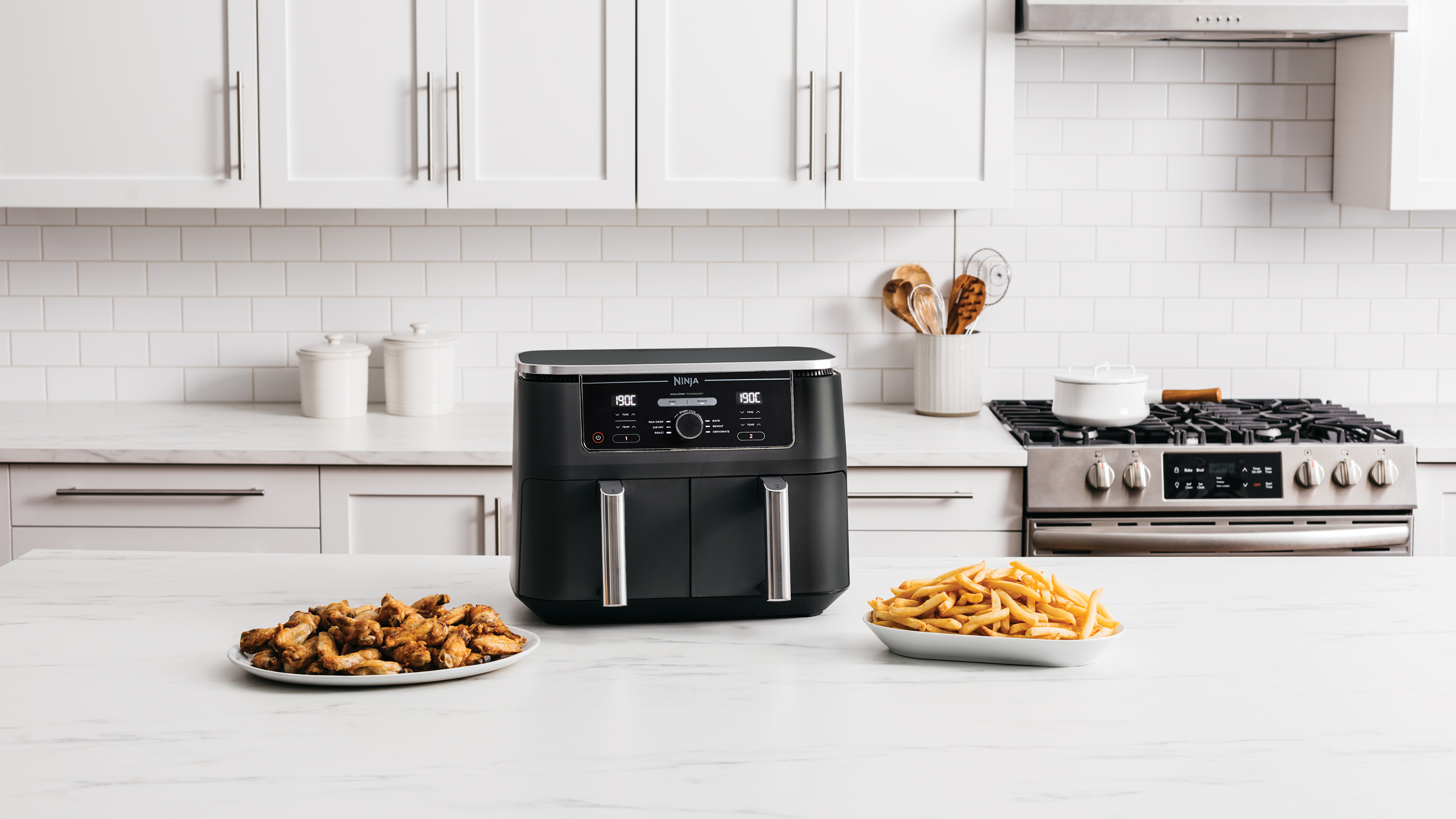

Recent updates
This article has been updated to show the new cost to run based on the January 2025 Energy Price Cap. It has also been fact-checked and any out-of-date information removed.
You may have heard that air fryers are more energy efficient than ovens, so we've calculated exactly how much electricity an air fryer uses and what this will cost now that the new energy price cap has come in from the 1st of January 2025.
If you've been wondering whether to invest in an air fryer, now might be the perfect time to make the addition to your kitchen. The best air fryers will cook up some tasty meals for you and the family, and will save you money compared to using a traditional gas or electric oven.
Cooking our food isn't exactly something we can cut down on, so if we can find a way to do it more efficiently, we say bring it on. Keep reading to find out exactly how much electricity an air fryer uses, what this will cost you, and whether or not it can save you money when looking to save energy at home.
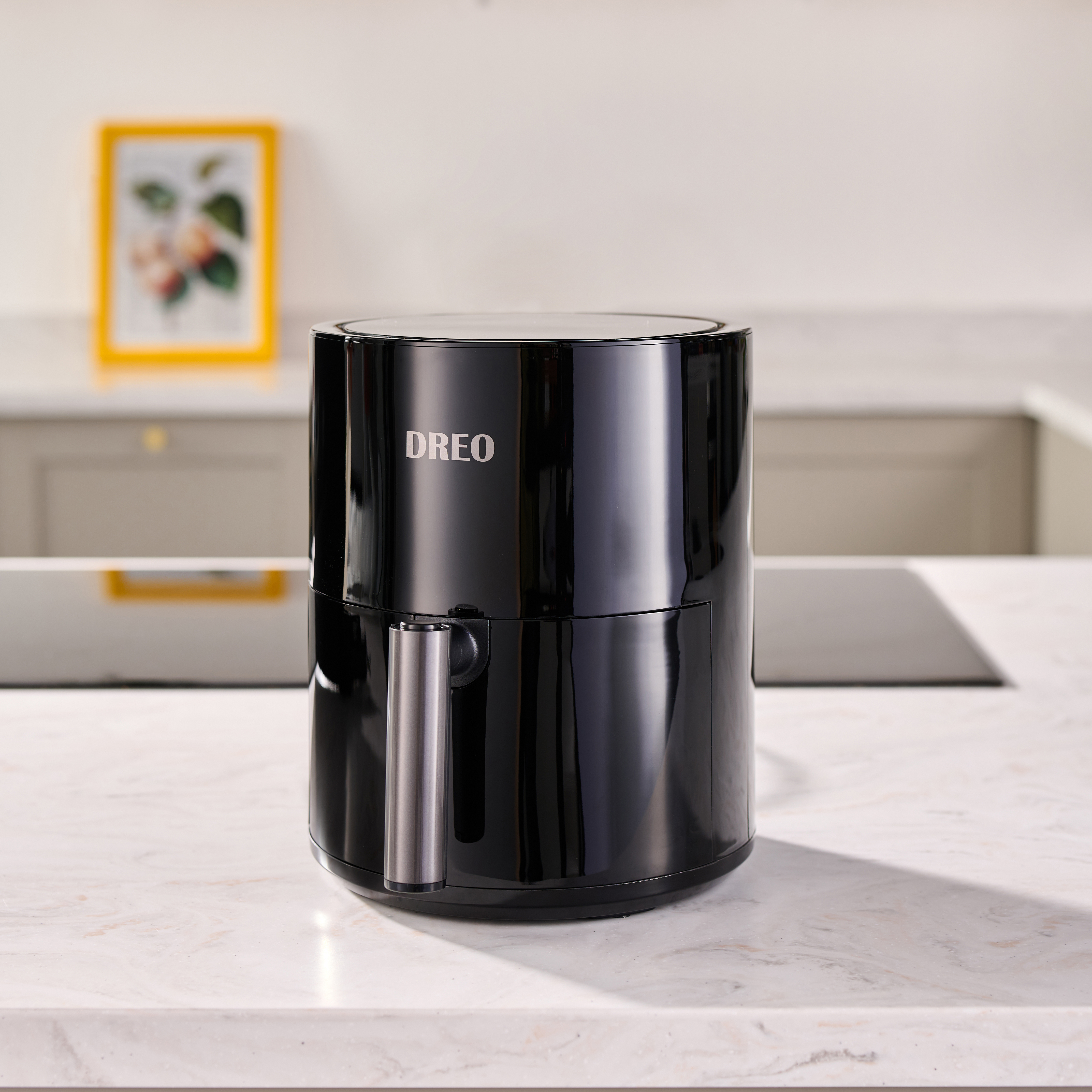
How much electricity does an air fryer use?
'The amount of electricity an air fryer uses depends on the type, size, temperature, and amount of time the air fryer is being used', explains Jennifer Warren, energy expert at Energy Guide.
The two main types are basket air fryers and air fryer ovens.
- Basket air fryers tend to be smaller, and are usually used for cooking one item at once e.g. a portion of fries
- Air fryer ovens are larger, and can be used to cook multiple things at once. They can also cook a wider variety of foods e.g. pizza
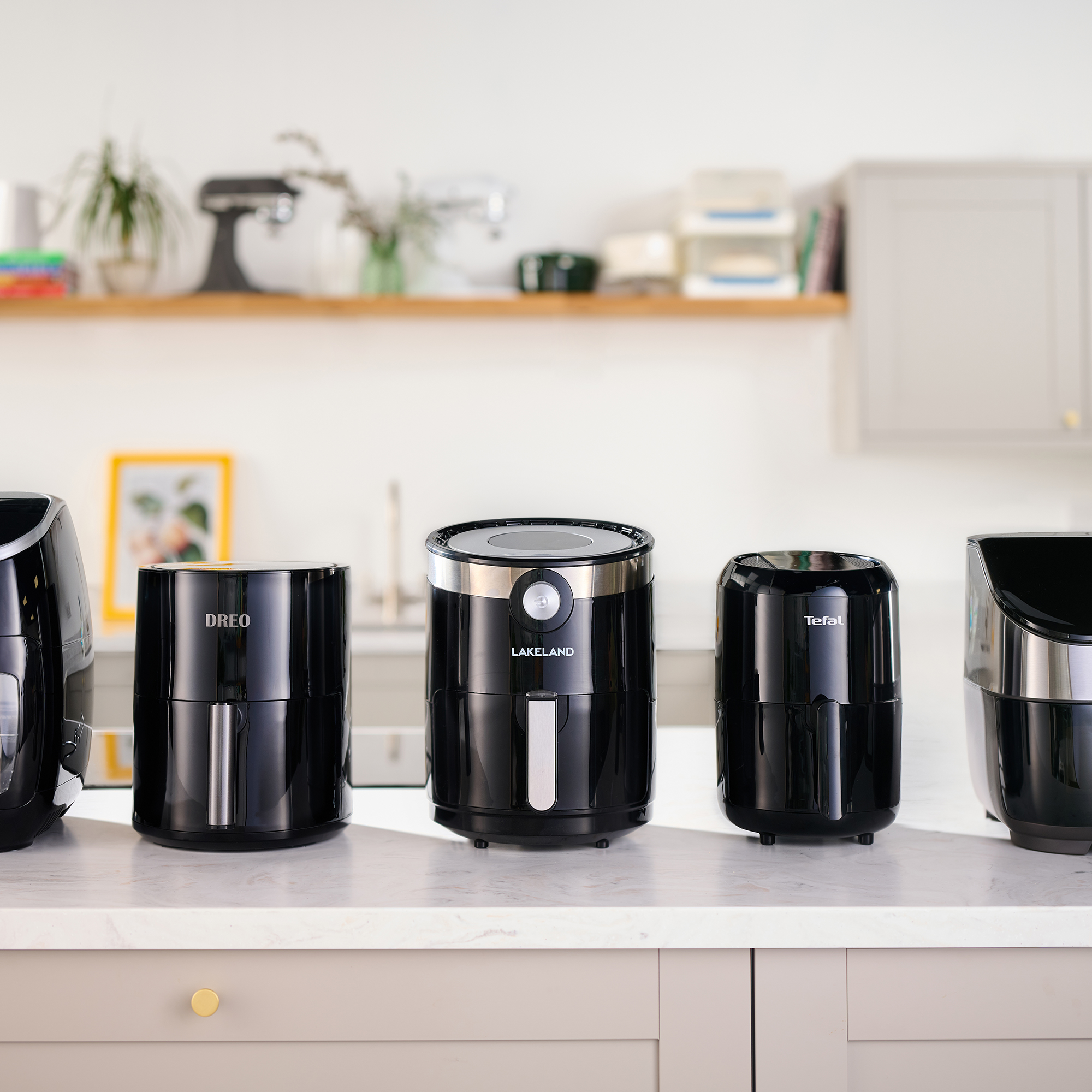
An air fryer works by heating the air inside it to a hot enough temperature to be able to cook food. This means that the larger the air fryer, the longer it will take to heat up, and the more electricity it will use. Generally speaking, air fryer ovens use more electricity than basket air fryers.
There is a simple equation you can do to calculate how much electricity your air fryer is using. Simply multiply the device's wattage by the number of hours you use it per day, and divide this number by 1000 to get the daily kilowatt-hour.
Get the Ideal Home Newsletter
Sign up to our newsletter for style and decor inspiration, house makeovers, project advice and more.
For example, if you use a 1500W air fryer for an average of one hour per day, it will use roughly 1.5 kilowatts (kW) of electricity when you use it. Most air fryers use between 1.4 and 1.7kWh (kilowatts of energy per hour).
How much does it cost to run an air fryer?
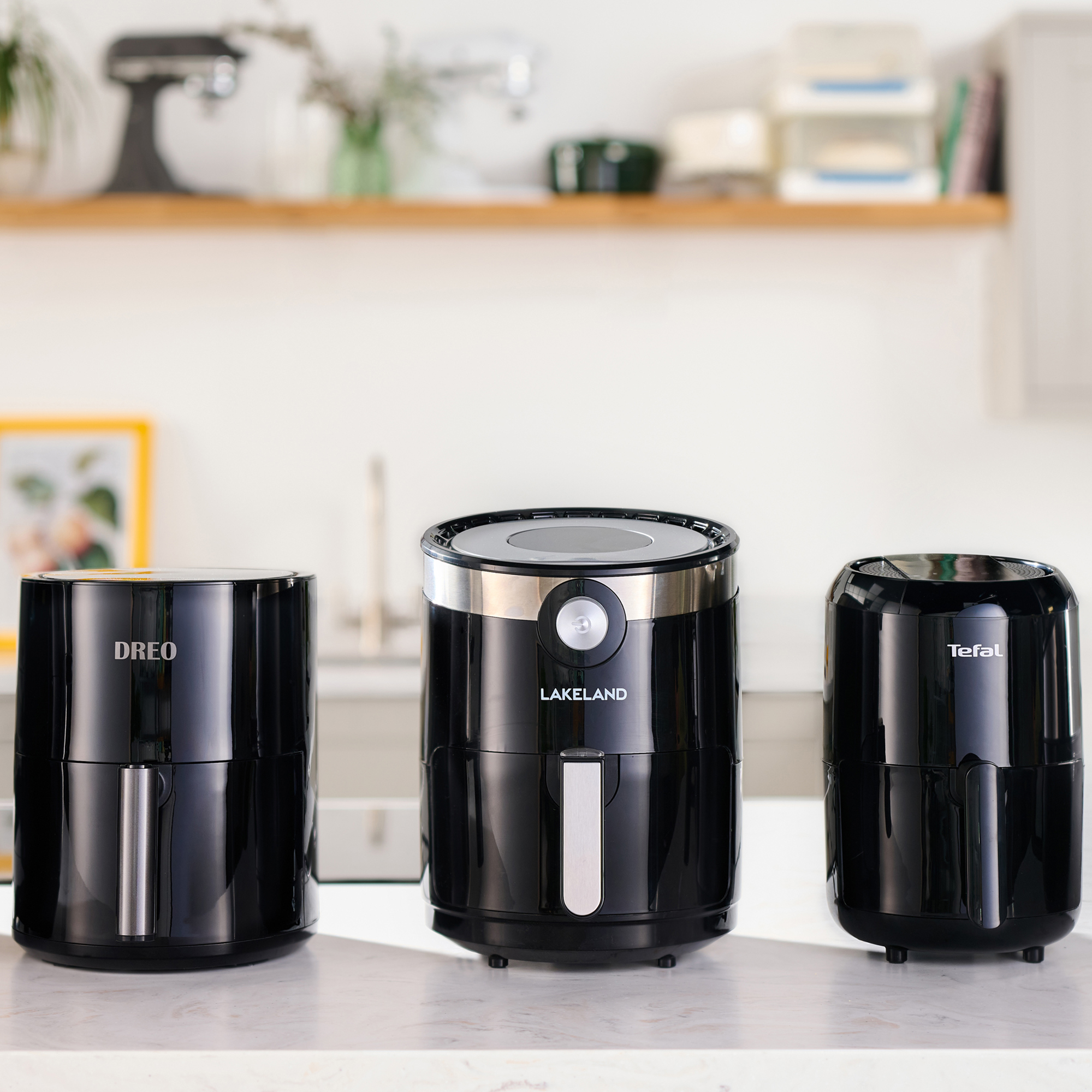
To work out how much it costs to run an air fryer you will need to know what you pay per kWh, which you can find on your energy bill.
Following the new energy price cap in January 2025, the highest price you could pay per pence/kWh is 24.86p which is up from 24.5p per kWh, set in October. With that in mind, we've used 24.8p to calculate how much some air fryers could cost to run following the price cap increase.
- An example 1500W basket air fryer used on average for 30 minutes a day will cost roughly £1.30 per week, £5.20 per month, and £62.49 per year.
- An example 1700W basket air fryer used on average for 30 minutes a day will cost roughly £1.47 per week, £5.90 per month, and £70.82 per year.
- An example 2400W air fryer oven used on average for 30 minutes a day will cost roughly £2.08 per week, £8.33 per month, and £99.99 per year.
We based our calculations on 30 minutes of usage per day, given that air fryers typically take half as much time as an electric oven to heat up. But if you're using an air fryer for an average of one hour per day, these figures will double.
Once you know how much you pay for electricity per kWh, you can work out the cost of your air fryer by multiplying this number by your air fryer's kWh.
Is it cheaper to use an air fryer than an electric oven?
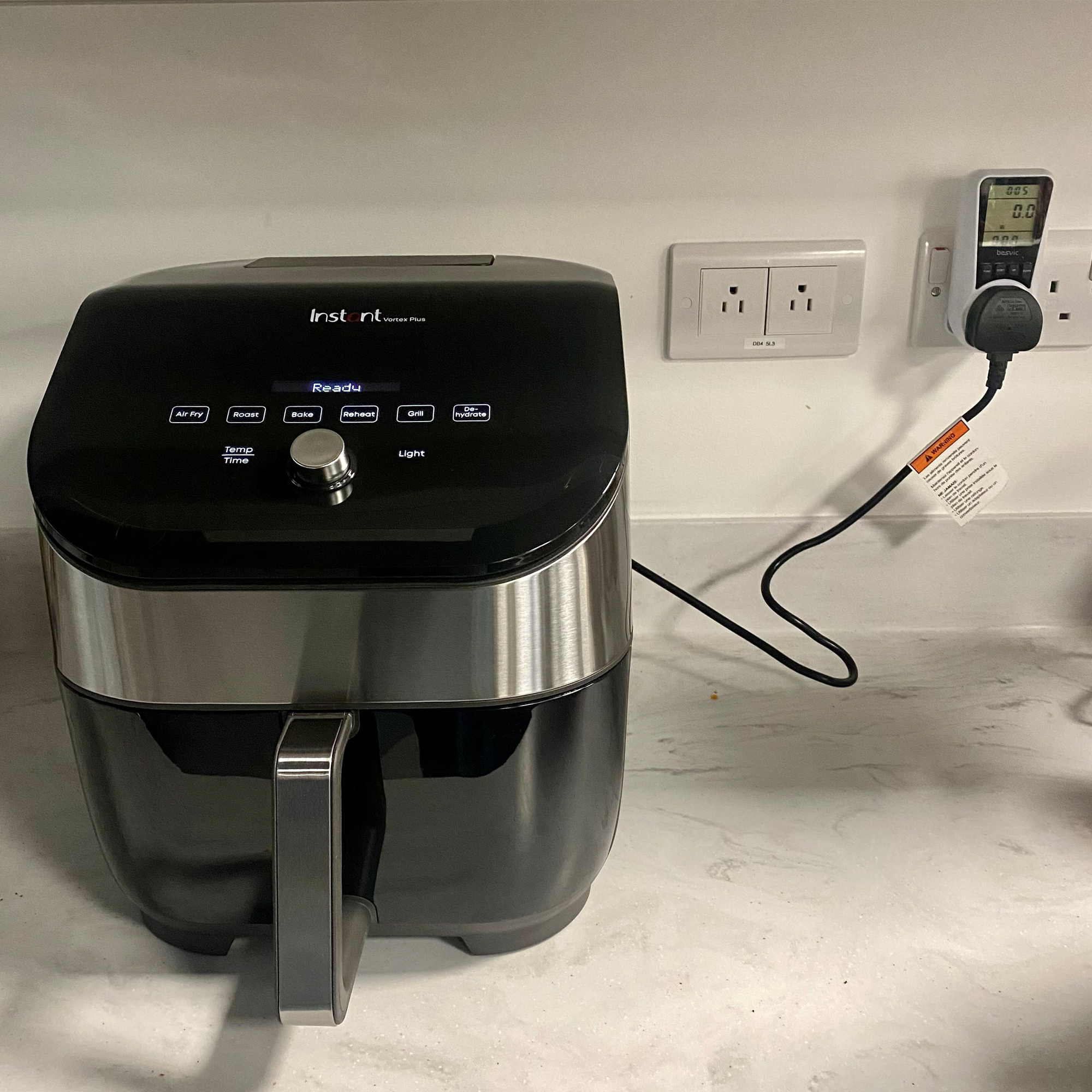
'Typically, it will be cheaper to run an air fryer vs a traditional electric oven', explains Jennifer from Energy Guide. 'This is mainly due to an air fryer requiring less kilowatts per hour to reach its maximum temperature and the fact that they cook things much more quickly due to the amount of surface area they use.'
Electric ovens are larger than air fryers and take longer to heat up, meaning they'll be switched on for longer and therefore will use more electricity. Air fryers can typically save around 30 minutes in cooking time, which makes them a lot cheaper to run. Just make sure you switch your air fryer off as soon as you're done using it.
Will an air fryer save me money?
Yes, an air fryer will save you money. If you switch to cooking from an electric oven to an air fryer, you'll be using less energy and your bills will subsequently go down.
'Air fryers are a cheaper and easy alternative to oven cooking, using less energy than other cooking methods', explains Caitlin Wood, Assistant Marketing Manager at Russell Hobbs.
Make sure you purchase an air fryer that is practical for you though. If you have many mouths to feed, a small basket air fryer might not be up to the task of cooking the evening meal, and it won't save you money if you're using it alongside your regular oven as normal. Air fryer ovens can have as large as a 24L capacity, and buying a large one can still be cheaper than running an electric oven.
Plus there are a whole wealth of healthy air fryer ideas to explore, so it's a win win.

Katie has been writing freelance since early 2022, specialising in all things homes and gardens, following achieving a Masters in Media and Journalism. She started out writing e-commerce content for several of Future’s interior titles, including Real Homes, Gardeningetc, Livingetc, and Homes and Gardens. Since then she’s been a regular contributor on Ideal Home’s digital team, covering news topics, how-to guides, and product reviews.
-
 Who is responsible for repairing a party wall?
Who is responsible for repairing a party wall?How to find out who should be organising and paying for the work
By Natasha Brinsmead
-
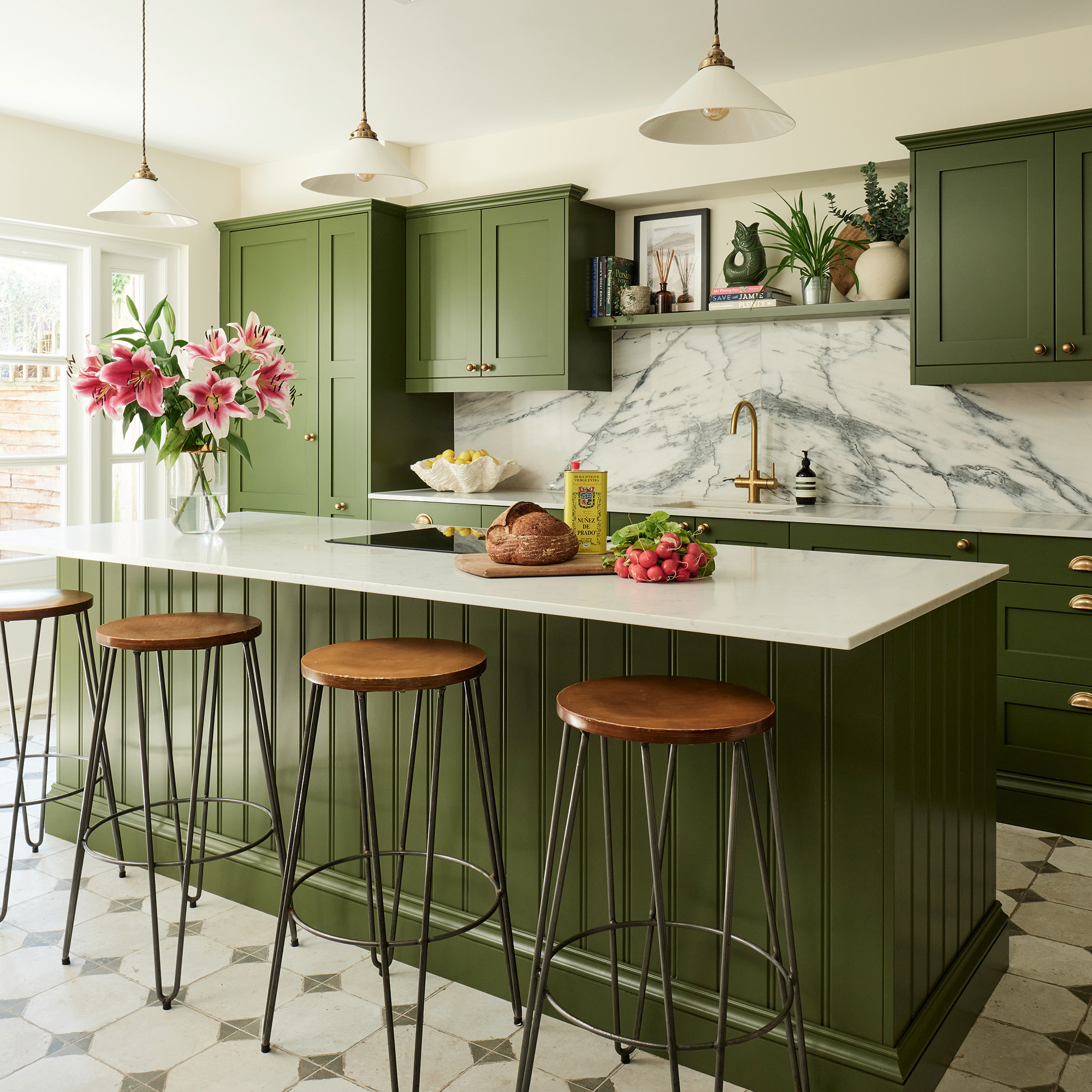 Overcoming limited space and doing away with an awkward layout, this couple created a family kitchen filled with elegant touches
Overcoming limited space and doing away with an awkward layout, this couple created a family kitchen filled with elegant touchesThe symmetrical layout is full of luxurious details
By Holly Reaney
-
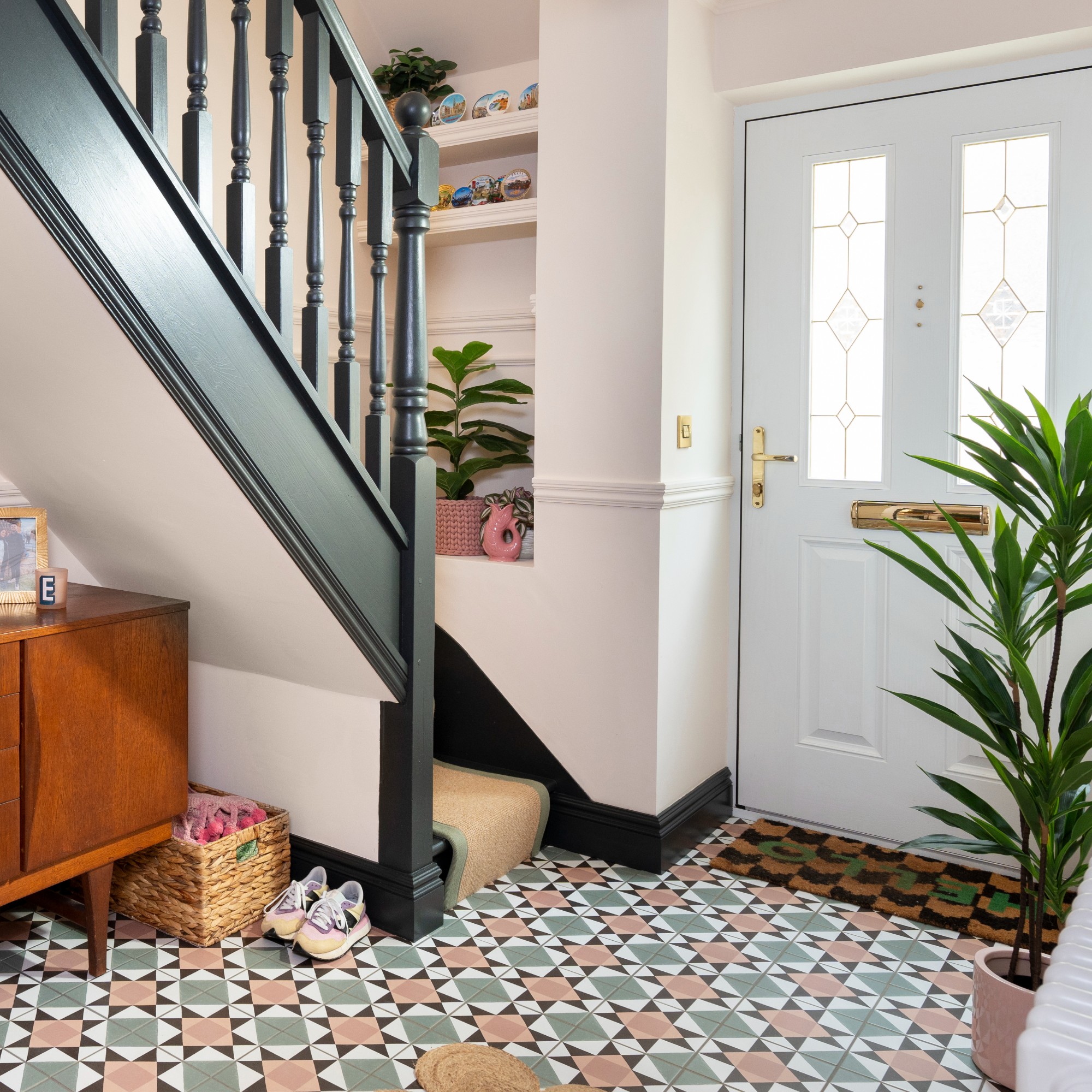 Should your doormat go inside or outside the front door? According to experts I've been getting it wrong for years
Should your doormat go inside or outside the front door? According to experts I've been getting it wrong for yearsExperts reveal the best spot for a a doormat based on your preferences and where you live
By Sara Hesikova